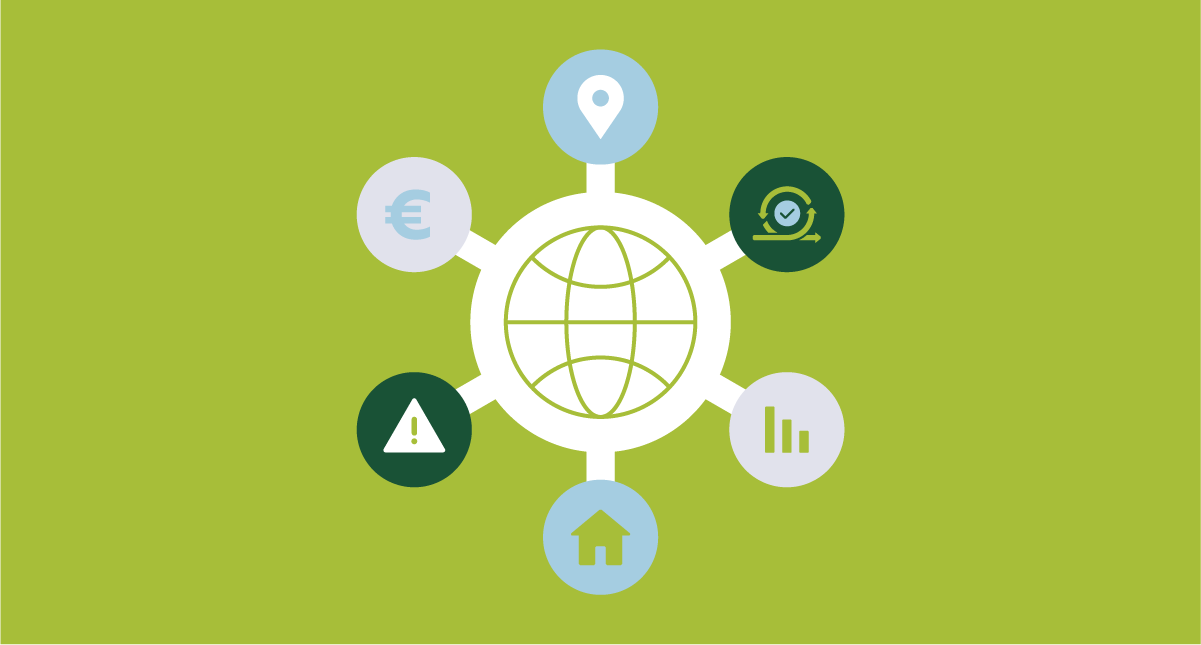Could the crisis result in new nearshoring opportunities for Lithuania? As global businesses rethink the way they manage critical business processes, increasing priority is being given to locations that offer flexibility, resilience and robust ICT infrastructure. Laisvis Makulis, Vice-President at Invest Lithuania, examines the factors that make Lithuania an increasingly attractive choice in the post-crisis GBS landscape. Read it below.
__
The unprecedented Covid-19 outbreak has challenged the “business as usual” approach that has been applied to site selection, the setting up of business operation centers, and the managing of large scale critical business operations. Core site selection criteria are now likely to be reshuffled as companies learn from their experience and increasingly prioritize locations that offer a greater degree of flexibility, resilience, and robust ICT infrastructure. Meanwhile, pure labor arbitrage is likely to continue to decrease in importance, a trend that we have seen developing throughout the last decade.
These are just a few of the revealing insights we gained from the largest Invest Lithuania webinar so far, “GBS. Beyond the lockdown”, which I had the pleasure to host. I had the honor to hold a lively discussion with a forum of recognized industry professionals – Elias van Herwaarden (Principal of Locationperspectives), Giedrius Dzekunskas (Head of End User Technology at Danske Bank), Arminta Saladziene (CEO at Nasdaq Vilnius Services), Marius Ivanauskas (Head of Telia Global Services Lithuania) and Sarunas Suipis (Managing Director at Western Union).
Can this crisis result in new nearshoring opportunities for Lithuania? Yes, it can, and I am sure it will
The pandemic has forced a lot of companies to change how they think and work. And this has delivered surprising outcomes, with some enterprises achieving results in 3-4 days that would have previously taken 3 months or 3 years. New key themes and trends are emerging in location strategy that will eventually affect how final decisions are made.
Focus on corporate cost control. Based on PwC’s COVID-19 CFO Pulse Survey (1), 80% of CFOs will be implementing cost reduction measures globally in the next 3-12 months. Furthermore, only 22% of CFOs think that they will reduce investment in digital transformation, while 13% are thinking about reducing customer experience initiatives. With its dedication to providing the best client services possible and the presence of a robust digital infrastructure, the Lithuanian GBS sector is perfectly placed to meet these new needs.
Agile teams and flexibility. Remote work, agile teams and projects are nothing new for IT teams. However, the pandemic has seen the increasing application of this model to other processes. And this is something that our panel believes is set to continue. “In our case, this situation brought a quick iteration mindset to our core organizational capabilities, such as HR, learning and development or people engagement. When we talk agile, we can now talk about HR, organizational development and so many things”, said Marius Ivanauskas, Head of Telia Global Services Lithuania.
De-risking is the new mantra. In a business landscape that is now far more uncertain, companies will need to pay more attention to factors such as country governance, ICT infrastructure, and agility. Going forward it will be all about de-risking. Arminta Saladziene elaborated on Nasdaq’s experience: “Nasdaq powers not only their own markets, 70 other markets also rely on the company’s technology. The team in Vilnius has throughout its existence remained focused on resilience, contingency and agility. This has taken years of dedicated capacity planning, risk and change management – all of which has eventually paid off in uncertain times like this.”
Work from home does work. Working from home has commonly been seen as a practice most suited to certain industries like software development, or SMEs or startups. The current situation indicates, however, that larger corporations have been able to successfully transition to a remote work environment where employees can perform complex, client facing activities from home. As Giedrius Dzekunskas from Danske Bank observed: “Our tech-savvy local talent and the distributed teams with end-to-end ownership at Danske bank have made our transition to a remote environment smooth and easy”. With more and more companies offering remote work opportunities along with support to maintain employee well-being, what will the role of the physical office be moving forward? This question provoked a range of opinions. The overall consensus was that yes, the office was still needed for knowledge sharing, social activities, and interactions. It is, as the panel observed, a vital component when creating a company’s organizational culture. But imagine this scenario, raised by Sarunas Suipis: “Having all this flexibility now, will working from the office become a new corporate benefit?”.
No radical changes in the community, rather a shift in emphasis
The Covid-19 crisis may present many more opportunities in terms of new complex nearshoring projects for smaller countries that can provide agility, responsible governance, and a strong infrastructure. And Lithuania can very much be included in that group. Yes, the cost will still remain important criteria, but I am sure that more companies will begin considering the total cost of ownership, rather than only the direct costs associated with running BAU operations. Now it is all about speed, infrastructure, contingency and agility. In my opinion, Lithuania has passed this test of adaptation and resiliency very well – and all credit must go to the robust local ICT infrastructure, experienced industry leaders and exceptionally motivated talent that has made that possible.
Want to talk more about GBS & ICT opportunities in Lithuania? Our team is ready – CONTACT US!
I also suggest becoming a subscriber of our newsletter dedicated specifically to news, reports and analysis on GBS&ICT sector.













